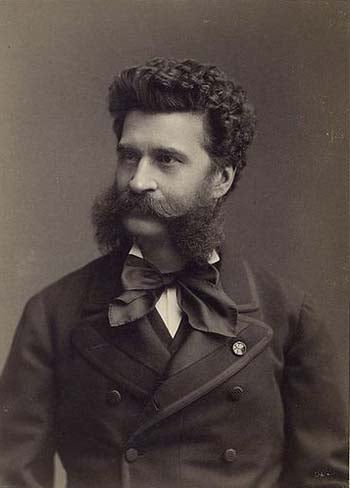Johann Strauss the Younger is known as the waltz-king, but his father was worthy of the title before him, according to an eyewitness account from Vienna in 1833:
“Under illuminated trees and in open arcades people sit at countless tables eating and drinking, chatting, laughing and listening. In their midst the orchestra plays new waltzes that stir the blood like the bite of a tarantula. In the middle of the garden, on the orchestra platform stands the modern hero of Austria, the Austrian Napoleon, the conductor Johann Strauss.
“The power wielded by the black-haired musician may be very dangerous. He’s particularly lucky that there’s no censorship for waltz music and the thoughts and emotions it stirs up.
News with a little more humanity
WPR’s “Wisconsin Today” newsletter keeps you connected to the state you love without feeling overwhelmed. No paywall. No agenda. No corporate filter.
“The motley crowds bump each other. The girls, warm and laughing, push their way through groups of lively youths, their hot breath like the perfume of tropical flowers.
“A long rope is put up to separate those in the center of the hall from the dancers. It’s an unsteady barrier though, and the only way to distinguish the dancers is to watch the girl’s heads going round and round. The couples waltz right through anything that gets in the way of their joyous enthusiasm. Nothing holds them back, not even the intense heat, which pours forth in waves as if driven by African winds.
“These orgies go on till early morning, then Austria’s musical hero, Johann Strauss, packs up his violin and goes home to sleep for a few hours and to dream of new battle plans and waltz themes for the next afternoon. The steamy couples stream out in the warm night airs of Vienna and disappear with happy giggles in all directions.”
An account of a waltz night presided over by the first Waltz King, Johann Strauss the Elder in Vienna in 1833.
Wisconsin Public Radio, © Copyright 2026, Board of Regents of the University of Wisconsin System and Wisconsin Educational Communications Board.

